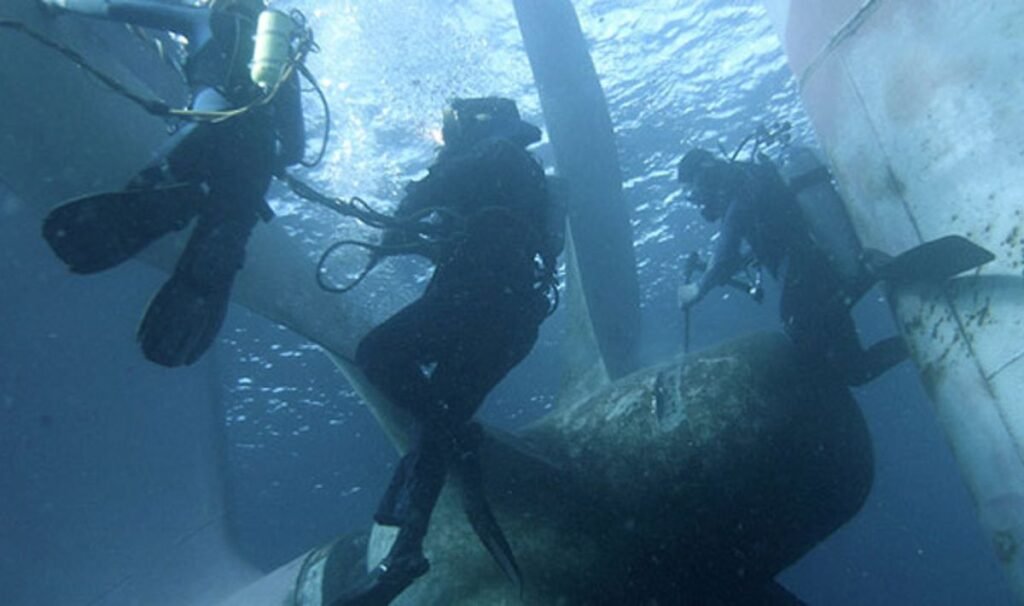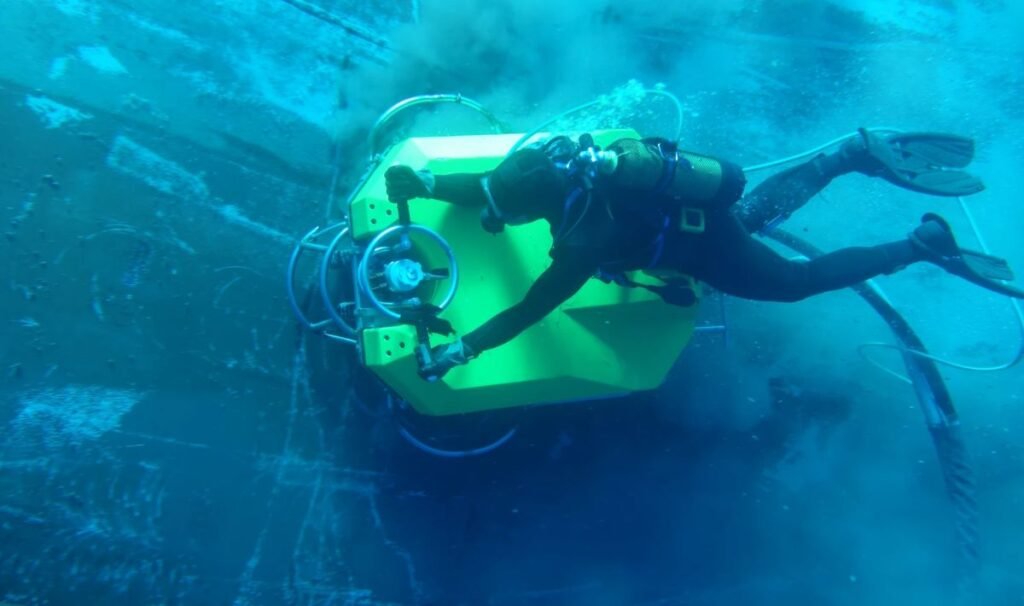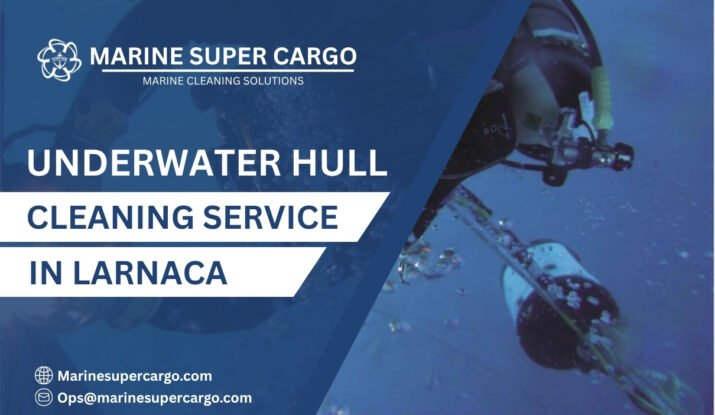Picture this: your vessel gliding out of Larnaca Marina, catching the morning breeze—and slicing through the Mediterranean with barely a ripple. Below the surface, however, things can change fast. Over time, marine growth silently claims your hull, turning your streamlined bottom into a drag-producing obstacle course. Underwater hull cleaning in Larnaca is not just smart maintenance; it’s the heartbeat of efficient, safe, and eco-friendly boating in Cyprus.
The Hazards of Biofouling in Larnaca’s Coastal Waters
Larnaca’s warm climate and mineral-rich seawater are a haven for all sorts of marine hitchhikers—algae, barnacles, and soft coral colonies. This sticky “marine beard” grows fast, especially in busy harbors or on anchored vessels. Biofouling does far more than just spoil your hull’s good looks. It increases fuel consumption, sends engine stress soaring, blocks water intakes, reduces speed, and can severely disrupt propeller performance. Fouled hulls even send out more CO2 emissions while doing less work, making your vessel both slower and more expensive to run.
How Often Should You Provide Underwater Hull Cleaning in Larnaca?
Some skippers wait for obvious performance drops—bad idea. Most professionals recommend underwater hull cleaning in Larnaca every 3 to 6 months for actively used vessels. If you run a commercial ship, fish boat, or high-use yacht, cleaning every two to three months offers the greatest fuel and cost savings. Newer antifoul paints might allow you to stretch beyond that, but Larnaca’s waters are so fouling-prone that regular inspections are a must. The simple rule: the more your hull sits, the quicker the slime and barnacles will show up.
Main Methods for Underwater Hull Cleaning in Larnaca
Diver-Assisted Brush Cleaning
The classic approach still rules in Larnaca. Certified divers equipped with wire, INOX, or specialized nylon brushes scrub away fouling while carefully avoiding damage to your hull’s paint. For soft growth, nylon brushes protect antifouling coatings, while harder brushes are used for dense barnacle or shell growth. A diver can typically clean up to 400 m² per hour on flat surfaces, although bow and stern cleaning takes more time and skill.
Robotic and Hydraulic Systems
For larger ships or commercial fleets, hydraulic “Brush Kart” systems and remotely operated vehicles (ROVs) are game-changers. These state-of-the-art machines use multiple rotating brushes to clean the hull without harming coatings, and some models retract to avoid paintwork when needed. High-quality ROVs can be controlled from the surface and accomplish cleaning where divers might face higher risks or access issues. Filtration systems can even collect debris to prevent waterway pollution.
DIY Hull Cleaning: Is It an Option?
Some hands-on boat owners tackle hull cleaning themselves, scraping with safe tools while underwater. For small sailing boats with copper-based or hard epoxy paints, careful DIY cleaning can be very effective and keeps haul-out costs low. But for larger yachts or commercial vessels, professional teams have the skills, insurance, and safety training needed for complex jobs—plus they prevent the health or environmental mishaps that can happen with amateur efforts.

What to Look for in a Professional Hull Cleaning Provider
- Certified, insured divers or technicians
- State-of-the-art equipment for cleaning and propeller polishing
- Experience in Larnaca and compliance with Cypriot port authority regulations
- Options for debris capture and minimal paint wear
- Clear before/after reports and inspection records for owners
Step-by-Step: How Underwater Hull Cleaning Works in Larnaca
- Assessment & Inspection
Divers or ROV operators check the fouling level and assess for any hull paint issues or propeller damage. - Choosing the Right Tools
Based on paint type and build-up, the team selects soft or hard brushes, hydraulic systems, or specialized polishers for propellers. - Systematic Cleaning
Hull, propeller, and other underwater parts are cleaned section by section. Care is taken to avoid paint loss while ensuring all fouling is removed. - Checking and Reporting
After the work, divers survey the hull and propeller, noting any issues or recommendations. You receive a photo or video report. - Finishing Touches
Propeller polishing with diamond pads, cathodic protection survey, and, if necessary, recommendations for repairs or future care.
The Key Benefits of Regular Underwater Hull Cleaning in Larnaca
Speed, Savings & Vessel Health
A clean hull is a fast hull. Just a thin slime layer can decrease speed and bump up fuel consumption drastically. For commercial vessels, that means savings of thousands each year—and for leisure boaters, longer trips for the same price in fuel.
Lower Emissions and Environmental Compliance
Every extra knot of resistance means more greenhouse gases emitted for every mile sailed. Regular underwater hull cleaning in Larnaca actively reduces your environmental footprint, supporting global emission goals and keeping you compliant with local and IMO guidelines.
Protection for Paint and Propellers
Leaving fouling unchecked can result in propeller vibration, engine strain, and premature erosion of expensive coatings. Timely cleaning preserves your paint and propellers, keeps sensors functional, and ensures your vessel glides serenely in Cypriot waters.
Safety and Environmental Standards in Underwater Hull Cleaning in Larnaca
Reliable hull cleaning services in Larnaca have to meet strict Port Authority and environmental standards. This includes the use of certified and insured divers, minimal disturbance to paintwork, and, where possible, debris capture or water filtration to prevent contamination.
Pricing: What Does Underwater Hull Cleaning in Larnaca Cost?
Costs vary:
- Small boats and private yachts: a few hundred euros per service
- Commercial ships and large yachts: €1,000–€4,000 depending on vessel size, fouling type, and tech needed
- Add-ons like propeller polishing or advanced ROV cleaning may increase the final bill
However, compared to the cost of excess fuel or emergency haul-outs, regular cleaning quickly pays for itself.

How to Prepare for Your Cleaning Appointment
- Log your last hull cleaning and list paint type
- Remove loose gear, ropes, and fenders from the waterline area
- Notify the marina or port authority in advance, if required
- Secure hatches and intakes to avoid leaks or accidents
- Share any recent hull repairs or antifouling applications with your service provider for tailored care
The Future: Tech Trends in Larnaca’s Underwater Hull Cleaning in Larnaca Scene
From AI-enabled inspection drones to eco-filtration technology that captures all debris, the future of underwater hull cleaning in Larnaca is light-years ahead. Systems now monitor hull condition via sensors, helping you set proactive schedules and respond before fouling drains performance. New non-toxic, durable paints paired with “smart” robotic cleaning units mean you’ll spend less time worrying about biofouling, and more time exploring Cyprus’s turquoise coastline.
Conclusion
Whether you skipper a megayacht, commercial ship, or family cruiser, underwater hull cleaning in Larnaca is your key to faster passages, lower costs, and a lighter environmental footprint. Regular, professional care will keep you out of dry dock and ahead of the pack—so next time you set course out of Larnaca Marina, know your vessel is as sleek beneath the water as above. Sail smooth, sail smart, and make Larnaca your home port for efficient, eco-wise cruising.


